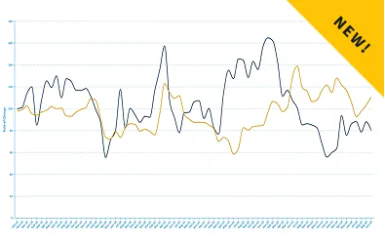US Trade Probe Advances, Threatening Duties on Imported Corrosion-Resistant Steel
The U.S. International Trade Commission (USITC), an independent federal agency, has voted to continue its investigation into imported corrosion-resistant steel products, a decision that sets the stage for imposing anti-dumping and countervailing duties on imports from 10 trading partners.
On Thursday, September 25, 2025, all three commissioners unanimously determined that the roughly $2.9 billion in imports are "materially injuring" domestic U.S. companies. The USITC's official report detailing its findings from the investigation is slated for release on November 5, 2025.
Corrosion-resistant steel, engineered to prevent rust and deterioration, is a fundamental material used across various sectors, including automotive manufacturing and construction. The steel’s widespread utility means the looming duties could have broad economic repercussions.
The countries and the self-governing island potentially facing these new trade barriers include:
- Australia
- Brazil
- Canada
- Mexico
- The Netherlands
- South Africa
- Taiwan
- Turkey
- United Arab Emirates
- Vietnam
These new duties would be applied in addition to the 50 percent tariff already placed on steel imports by the Trump administration. This action is the latest step in the administration’s broader strategy to expand tariffs and other trade defenses to protect U.S. steel and manufacturing sectors from what it sees as unfair foreign competition.
Implications of New Duties
The duties will take two forms, both intended to level the competitive landscape for American manufacturers:
- Anti-Dumping Duties: These are designed to offset imports sold at prices below fair market value. Projections indicate these duties could range widely, from less than 6 percent to over 190 percent on corrosion-resistant steel, with imports from Brazil and Vietnam expected to face some of the highest rates.
- Countervailing Duties: These aim to neutralize the effect of foreign government subsidies. These duties are projected to fall between zero and less than 17 percent.
This probe follows an August determination by the Department of Commerce that steel imports from these 10 partners were, in fact, being unfairly subsidized. That same month, the administration moved to broaden the list of products subject to existing steel and aluminum tariffs, signaling an even wider expansion may be considered.
The potential imposition of these steep duties introduces uncertainty across various U.S. manufacturing supply chains. Specifically, the RV industry relies heavily on steel for the chassis, frames, and various structural components of travel trailers, fifth wheels, and motorhomes.
Background
The anti-dumping and countervailing investigation was initiated following a 2024 petition filed by key players in the domestic steel sector. The petitioners included major U.S. manufacturers like Steel Dynamics, Nucor, U.S. Steel, and Wheeling-Nippon Steel, alongside the United Steelworkers labor union.
Alan H. Price, counsel to Nucor and a partner at the Wiley Rein law firm, hailed the USITC's recent affirmative decision as a major victory. In a press release, Price stated the decision confirms that American manufacturers of CORE (corrosion-resistant) products are being unfairly undercut by imports.
"This is a critical victory for American CORE producers and their workers," Price noted. "We are proud to have helped secure a level playing field on behalf of the domestic industry and in cooperation with the other petitioners and their counsel."
Please Sign in to View
Log in to view member-only content.
If you believe you are receiving this message in error contact us at memberservices@rvia.org.

